Menu
Main Menu
The Satyarthi Fellowship is a one-year, transformative leadership program that will empower changemakers to lead with Compassion and courage. We have a simple yet powerful belief: bringing together the brightest, most driven young people from across disciplines, continents, sectors, and lived experiences will catalyse the globalisation of Compassionate Action. Through immersive training, mentorship, and real-world problem-solving, fellows will work at the intersection of social justice, policy, and community action to drive systemic change.
Fellows will also design and implement high-impact Compassionate Action Projects around the world, working alongside grassroots communities, international institutions, and world leaders. By uniting talent from across the Global South and North, we aim to create a new generation of global leaders who can deliver practical, scalable, and lasting solutions to the world’s most pressing challenges.

Bal Panchayat is a powerful model of democratic child and youth participation driving grassroots social change. These elected councils of young leaders work alongside local
governments to identify, voice, and help resolve critical issues affecting their communities.
Since 2001, 6905 Bal Panchayats have been formed.
Compassionate Communities are a living example of how compassion, as mindful problem-solving can drive real lasting change.
This rights-based, sustainable development model is designed to confront deep-rooted societal challenges and ensure genuine inclusion. Grounded in a participatory, community-driven approach, it empowers local leaders to develop solutions from within,
creating long-term impact and systemic transformation.
To date, we’ve partnered with over 1,400 rural communities, urban slums, traditionally nomadic groups, and indigenous populations to
dismantle structural oppression, challenge harmful socio-cultural norms, child exploitation, youth unemployment, gender discrimination, climate change and lack of access to social protection. Across every setting, the model advances universal access to education, healthcare, clean water and social protection — leaving no one behind.
Bal Panchayat is a powerful model of democratic child and youth participation driving grassroots social change. These elected councils of young leaders work alongside local
governments to identify, voice, and help resolve critical issues affecting their communities.
Since 2001, 6905 Bal Panchayats have been formed.

Compassionate Communities are a living example of how compassion, as mindful problem-solving can drive real lasting change.
This rights-based, sustainable development model is designed to confront deep-rooted societal challenges and ensure genuine inclusion. Grounded in a participatory, community-driven approach, it empowers local leaders to develop solutions from within,
creating long-term impact and systemic transformation.
To date, we’ve partnered with over 1,400 rural communities, urban slums, traditionally nomadic groups, and indigenous populations to
dismantle structural oppression, challenge harmful socio-cultural norms, child exploitation, youth unemployment, gender discrimination, climate change and lack of access to social protection. Across every setting, the model advances universal access to education, healthcare, clean water and social protection — leaving no one behind.
Bal Panchayat is a powerful model of democratic child and youth participation driving grassroots social change. These elected councils of young leaders work alongside local
governments to identify, voice, and help resolve critical issues affecting their communities.
Since 2001, 6905 Bal Panchayats have been formed.

Across all our models, we focus on community participation and ownership to drive lasting social, behavioral, and cultural change. Our key priorities include
Satyarthi Youth Network: The world’s first youth-led initiative focused on Compassionate Action, envisioned, developed, and launched by the 2025 class of the Satyarthi Summer School.
Bal Ashram is our Compassion Lab — a living testament to the transformative power of compassion. Established in 1998, it is India’s first long-term rehabilitation center for children rescued from child labour, trafficking, and exploitation.
Here, children not only heal from trauma and reclaim their childhood, but also rise as powerful voices against oppression and injustice.
More than 1,600 children and youth
survivors from marginalized
communities have found safety,
strength, and purpose at Bal Ashram.
As a vibrant global community, Bal Ashram has welcomed thousands of volunteers from over 40 countries, creating lasting bonds of solidarity.


Alumni of Bal Ashram have gone on to become doctors, lawyers, entrepreneurs, teachers, scientists, and activists. Many have studied at top institutions and spoken on global platforms — including the United Nations General Assembly, national parliaments, and other spaces of influence — carrying forward a message of justice, dignity, and compassion.
Bal Ashram continues to inspire experiential learning, bold dialogue, and youth-led movements, strengthening our mission to advance the Globalisation of CompassionTM.
“I never thought school was for girls like me. I used to graze buffaloes and watch others walk to class.”
For years, education felt out of reach for Nirma.
When she finally joined Class 7, she faced language barriers, sat with much younger students, and struggled to keep up. But with after-hours support from her village teacher and encouragement from our team, Nirma began to believe in herself.
Last year, she went from the fields of Lalpura, Rajasthan, to speaking on a global stage in Armenia, advocating for every child’s right to learn, dream, and thrive.
“I was once confined to domestic work. Today, I lead conversations on women’s rights and champion girls’ education.”
Lata’s world was once limited to the four walls of her home – her voice unheard, her potential untapped. But joining the Mahila Mandal (Women’s Council) changed everything.
What started as silent participation grew into strong leadership. With support and rising confidence, Lata found her voice and now empowers others. She leads on women’s rights, girls’ education, and local governance – showing that when women rise, communities rise with them.
*Joint study conducted by the Centre
for Social & Behaviour Change,
Ashoka University, and the Social
Innovation Studio (Jan–Aug 2025).
Compassionate Communities are a living example of how compassion, as mindful problem-solving can drive real, lasting change. This rights-based, sustainable development model is designed to confront deep-rooted societal challenges and ensure genuine inclusion. Grounded in a participatory, community-driven approach, it empowers local leaders to develop solutions from within, creating long-term impact and systemic transformation.
To date, we’ve partnered with over 1,400 rural communities, urban slums, traditionally nomadic groups, and indigenous populations to dismantle structural oppression, challenge harmful socio-cultural norms, child exploitation, youth unemployment, gender discrimination, climate change and lack of access to social protection. Across every setting, the model advances universal access to education, healthcare, clean water and social protection — leaving no one behind.

Our programmes contribute directly to 8 priority SDGs, enabling systemic and measurable change:
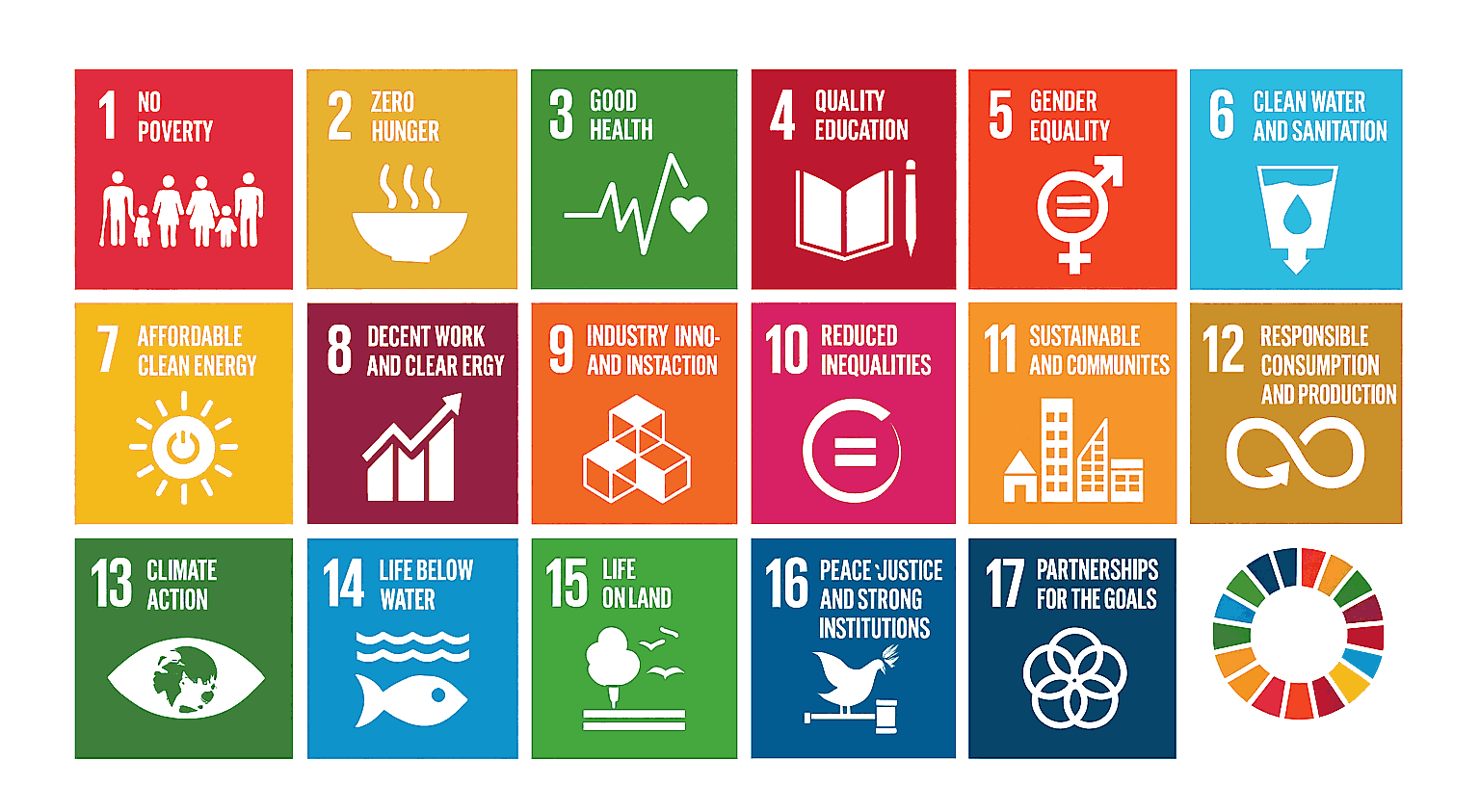
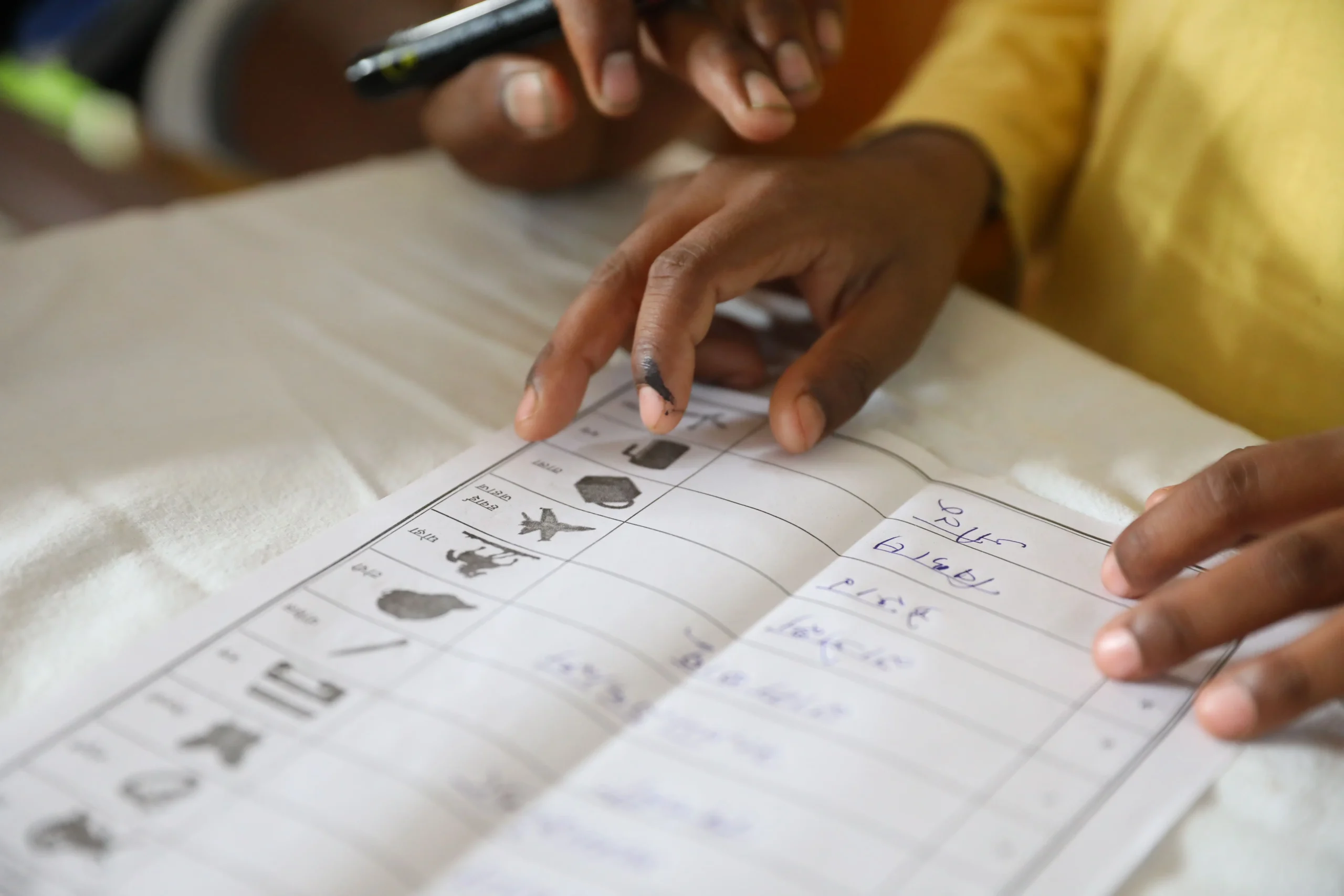
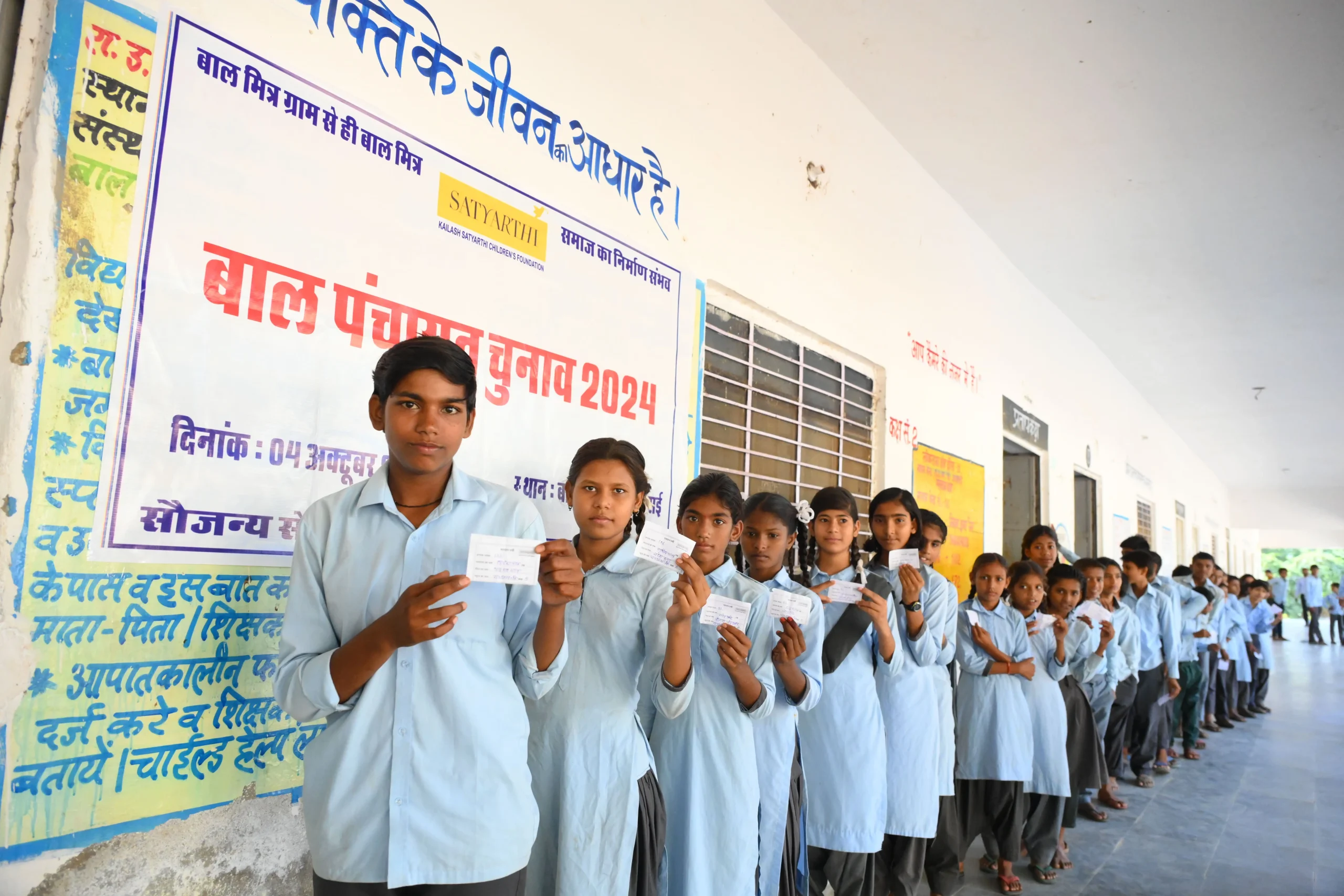
Across all our models, we focus on community participation and ownership to drive lasting social, behavioral, and cultural change. Our key priorities include
Across all our models, we focus on community participation and ownership to drive lasting social, behavioral, and cultural change. Our key priorities include


Bal Mitra Gram, our award‑winning child‑friendly village model – goes beyond ending child labour, child marriage and trafficking. It harnesses compassion to dismantle systemic barriers such as caste and gender discrimination and places children’s rights and voices at the forefront. Through Bal Panchayats (children’s councils), young people are empowered to speak out against injustice and lead collective action to ensure every child is in school and resolve local challenges.
Bal Mitra Mandal carries this ethos into urban slums. Adapting the BMG framework to dense city settlements, it creates compassionate, child‑centred neighbourhoods where youth leadership and community participation tackle exploitation and discrimination while promoting education, health and equitable opportunities for all.
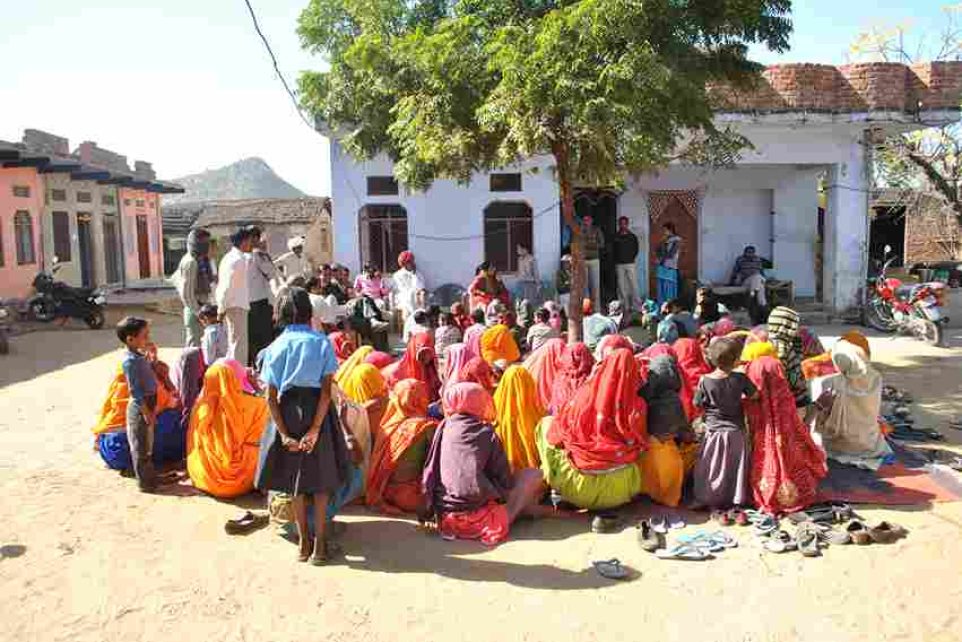
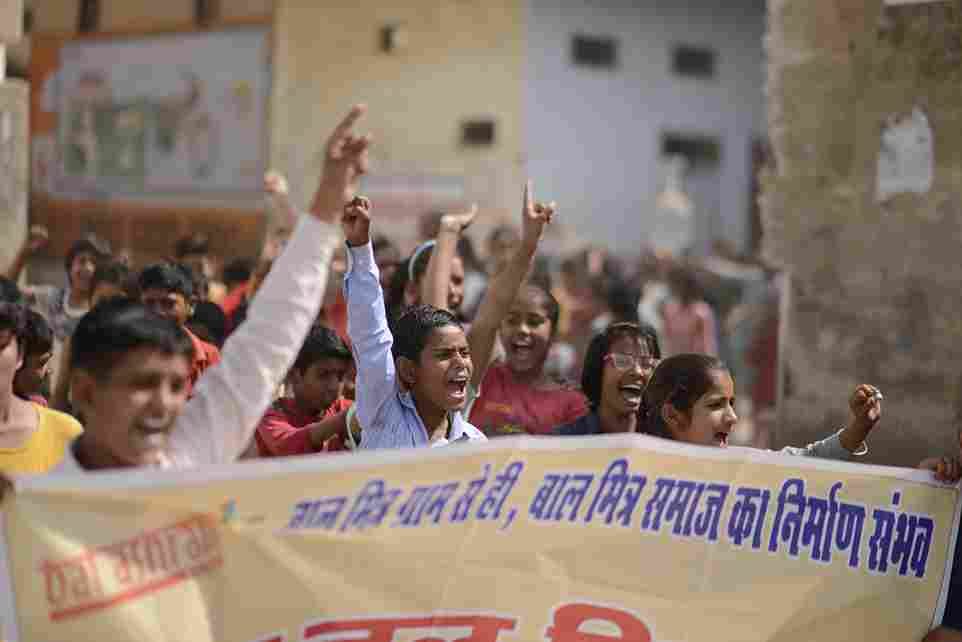
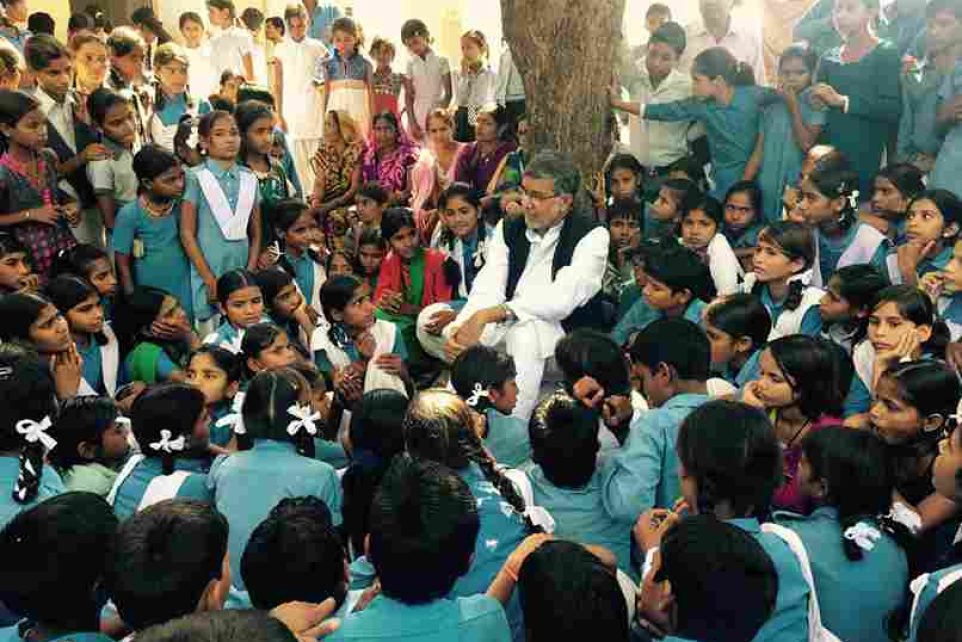
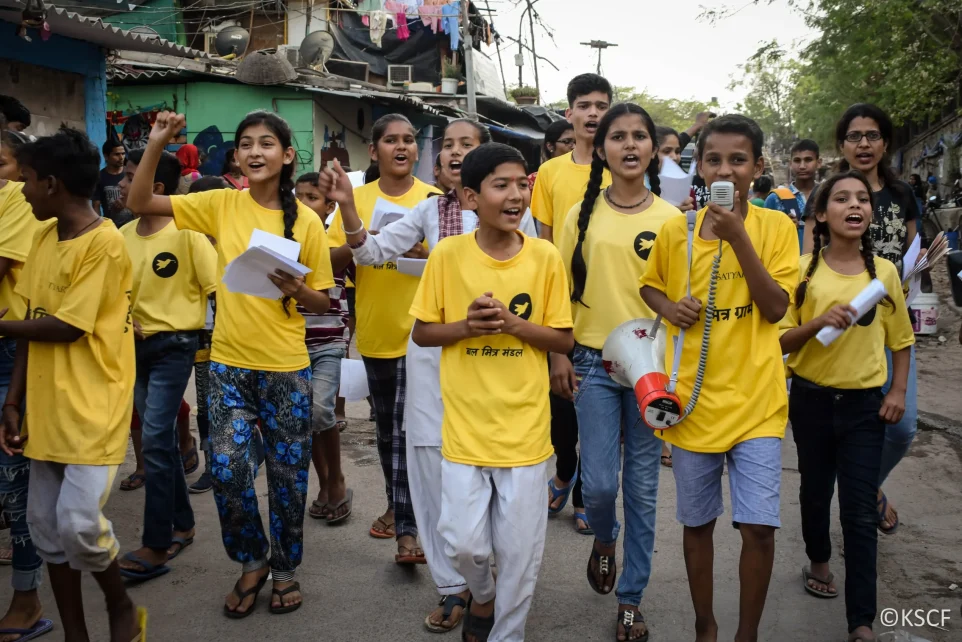
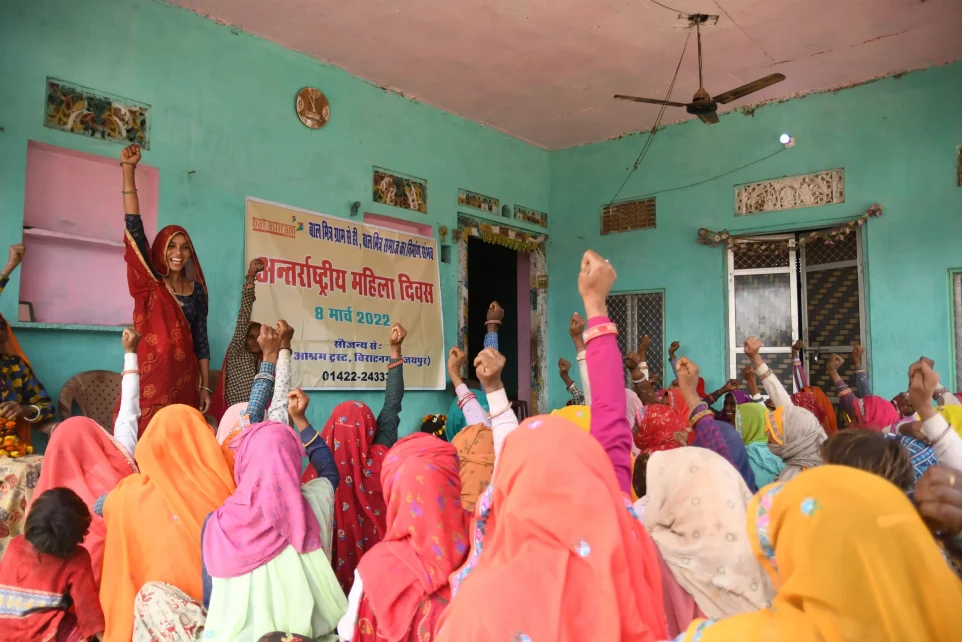
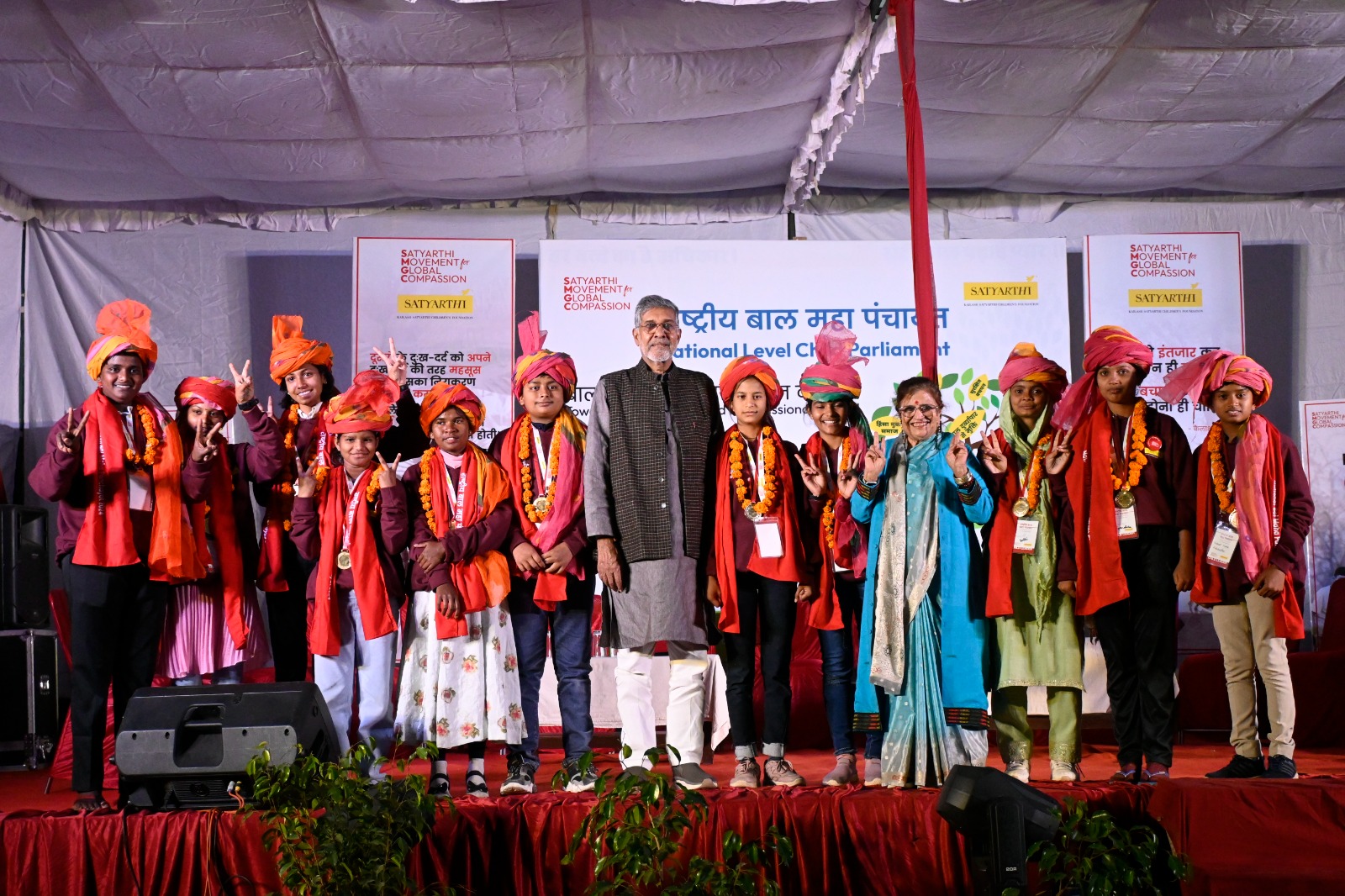

Decisions within BMG and BMM communities are guided by the needs and rights of children. This child-centric approach ensures that the well-being of children is at the heart of community actions and policies.
The model challenges and dismantles deep-rooted societal norms that perpetuate child labor, discrimination, and gender inequality. By educating and empowering community members, it fosters a culture of equality and respect.

A key guiding principle behind compassionate communities model is to foster community ownership and collective problem solving. By engaging local stakeholders, including children, youth , women and village leaders, it takes a holistic approach to creating social and cultural transformation.

Through our interventions, we ensure that development is comprehensive and benefits all members of the community, emphasizing inclusive practices that prioritize the most vulnerable.

Central to our compassionate communities model is the belief in participatory democracy, where every voice counts. The creation of the Bal Panchayat (Children’s Council) embodies this principle by giving children an active role in local governance and decision-making processes. Similarly, elected Youth Groups (Yuva Mandal) and Women’s councils (Mahila Mandal) further amplify children’s voices and address community issues through collective problem-solving.

Bal Ashram is our Compassion Lab — a living testament to the transformative power of compassion. Established in 1998, it is India’s first long-term rehabilitation centre for rescued children from child labour, trafficking, and exploitation. Here, children not only heal from trauma and reclaim their childhood, but also rise as powerful voices against oppression and injustice.
More than 1,600 children and youth survivors from marginalized communities have found safety, strength, and purpose at Bal Ashram. They learn to trust themselves and others, rediscover their childhood, and recover — all through the power of compassionate action.
As a vibrant global community, Bal Ashram has welcomed thousands of volunteers from over 40 countries, creating lasting bonds of solidarity.
Bal Ashram provides:
Alumni of Bal Ashram have gone on to become doctors, lawyers, entrepreneurs, teachers, scientists, and activists. Many have studied at top institutions and spoken on global platforms — including the United Nations General Assembly, national parliaments, and other spaces of influence — carrying forward a message of justice, dignity, and compassion.
Bal Ashram continues to inspire experiential learning, bold dialogue, and youth-led movements, strengthening our mission to advance the Globalisation of Compassion™.
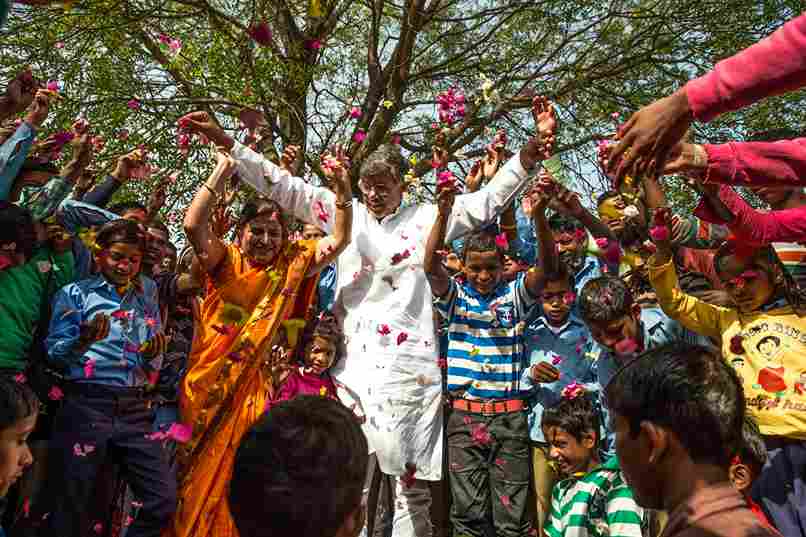
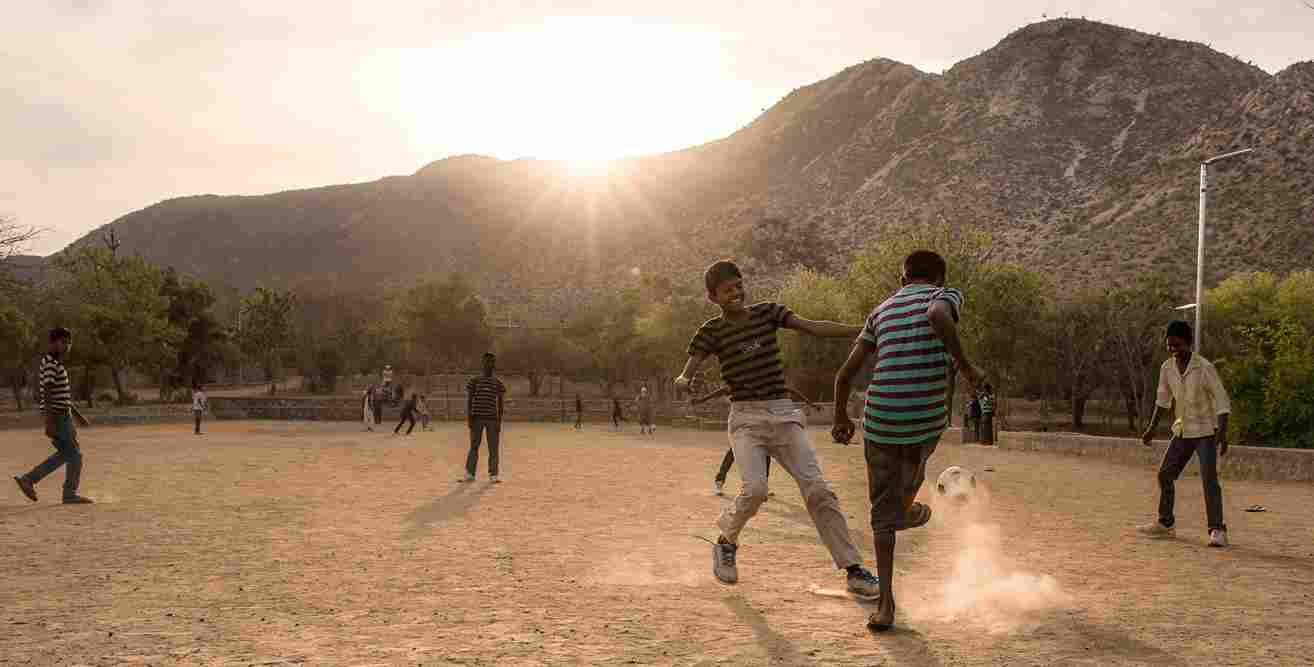
Bal Ashram is our Compassion Lab — a living testament to the transformative power of compassion. Established in 1998, it is India’s first long-term rehabilitation centre for rescued children from child labour, trafficking, and exploitation. Here, children not only heal from trauma and reclaim their childhood, but also rise as powerful voices against oppression and injustice.
More than 1,600 children and youth survivors from marginalized communities have found safety, strength, and purpose at Bal Ashram. They learn to trust themselves and others, rediscover their childhood, and recover — all through the power of compassionate action.
As a vibrant global community, Bal Ashram has welcomed thousands of volunteers from over 40 countries, creating lasting bonds of solidarity.
Bal Ashram provides:
Alumni of Bal Ashram have gone on to become doctors, lawyers, entrepreneurs, teachers, scientists, and activists. Many have studied at top institutions and spoken on global platforms — including the United Nations General Assembly, national parliaments, and other spaces of influence — carrying forward a message of justice, dignity, and compassion.
Bal Ashram continues to inspire experiential learning, bold dialogue, and youth-led movements, strengthening our mission to advance the Globalisation of Compassion™.
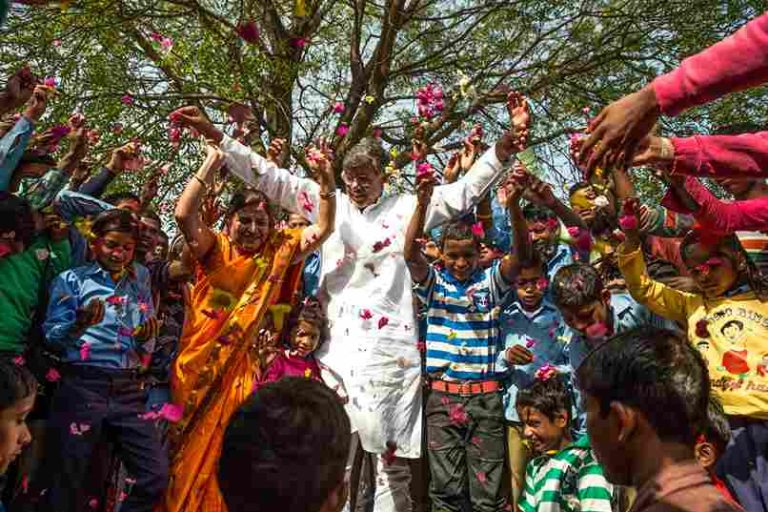


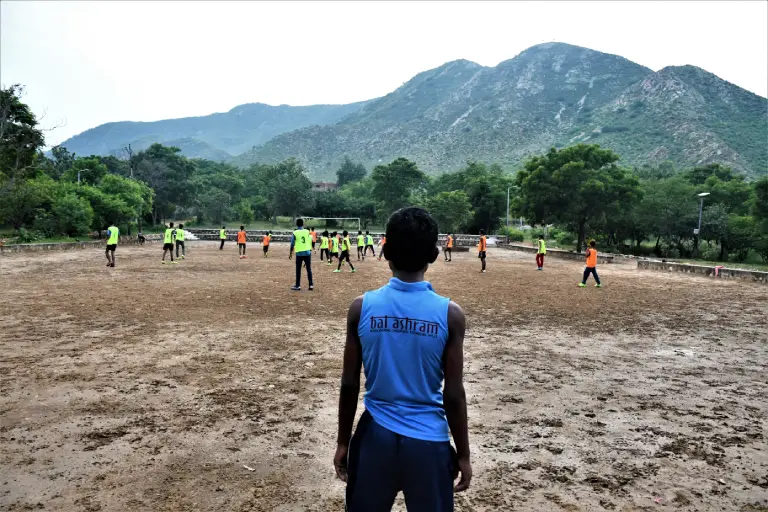

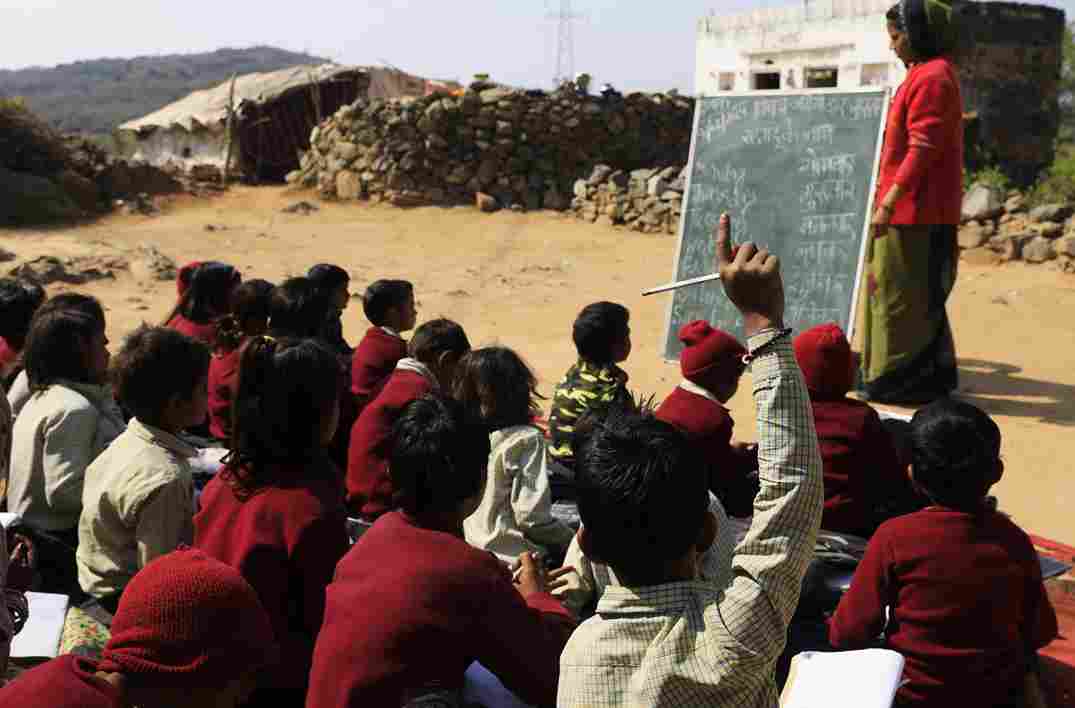
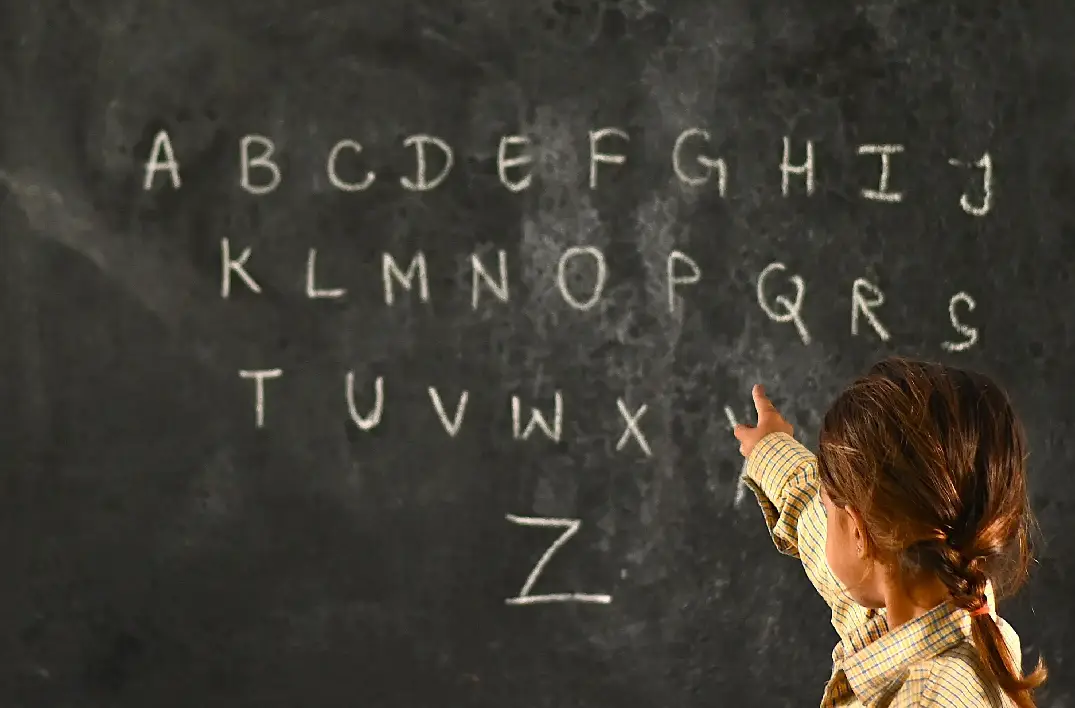
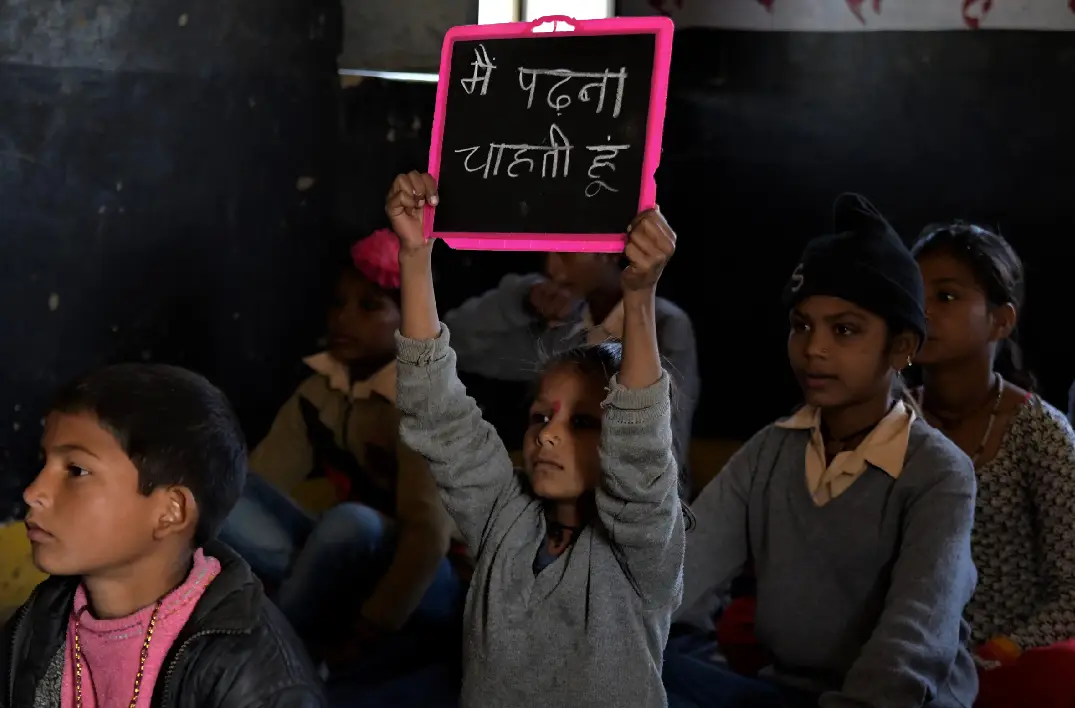
For generations, nomadic communities in Rajasthan have been marginalised, denied rights, labeled unfairly, and excluded from mainstream society. We are changing that. Through our 15 Banjara Education Centers, we are:
For generations, nomadic communities in Rajasthan have been marginalised, denied rights, labeled unfairly, and excluded from mainstream society. We are changing that. Through our 15 Banjara Education Centers, we are:




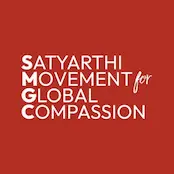
ABOUT US
Satyarthi Movement for Global Compassion enhances compassion in individuals, institutions and societies, to achieve justice, equality, peace and sustainability for all.
CONNECT WITH US
SUBSCRIBE FOR UPDATES
©2024 SMGC. All rights reserved.
Terms and Conditions: